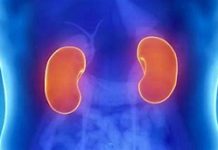How can the approval of Drug Controller General of India (DCGI) be disregarded completely, Delhi High Court ask the government.
What was the urgency for banning the manufacture and sale of over 300 fixed dose combination medicines and how can the approval of Drug Controller General of India (DCGI) be disregarded completely, Delhi High Court asked the government on Monday.
Justice Rajiv Sahai Endlaw also sought an explanation from the concerned ministry on the issue, saying they must have opted for some standard procedures before granting licences to the pharma companies.
“What were the standard procedures adopted by you (government) during grant of licence and what was the urgency which led to withdrawal of the same,” the court asked the Centre’s counsel while hearing over 180 pleas challenging the government’s decision to ban 344 fixed dose combinations (FDCs).
“How can approval of DCGI be disregarded entirely? You will have to state what changes occurred thereafter (post- approval) for disregarding. Else there is one expert panel today and tomorrow there will be another.
“There is no reason appearing from your (government’s) arguments as to what happened that a drug which received DCGI approval has now been banned,” the court observed.
In his response, Additional Solicitor General (ASG) Sanjay Jain said under the Drugs and Cosmetic Act, the government can disregard the approval given by DCGI and say that a FDC or drug has to be prohibited.
“Grant of approval does not restrain government from taking action under section 26A (power to prohibit manufacture of drugs and cosmetics in public interest) of the Act. Earlier also, more than 90 DCGI approved drugs were banned,” he said.
ASG was responding to the contentions of pharma companies like Pfizer, Glenmark, Procter and Gamble and Cipla, that there were three categories of drugs mentioned under section 26A which are “harmful, boastful and those that lack therapeutic justification.”
They had said the powers under the provision to allow prohibition of drugs that are harmful, restricting “boastful” claims about medicines and regulation of those that lack therapeutic justification.
Source: DLA










